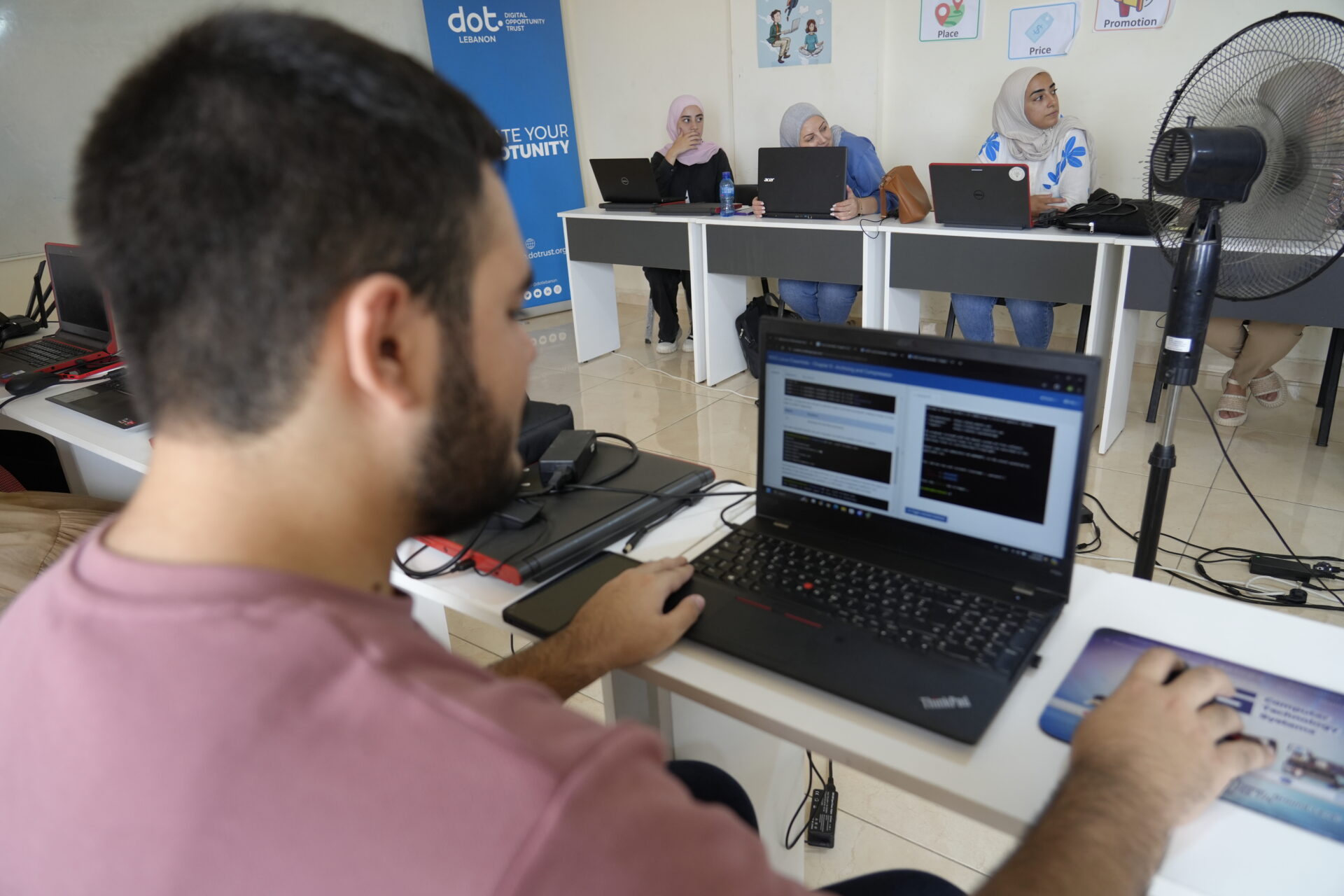AI for All: Empowering #DOTYouth to Lead in the Global AI Economy
As the momentum builds for the inaugural Global AI Summit on Africa in Kigali, Rwanda on April 3-4 2025. Digital Opportunity Trust (DOT), Vice President, Sub-Saharan Africa, Violette Uwamutara, joins hundreds of global leaders committed to shaping Africa’s role in the Global AI economy. Of particular importance to DOT is to reinforce the power of young people to contribute to the development of equitable, inclusive AI, with its potential to unlock and create opportunities for young people to respond to the AI divide.
At Digital Opportunity Trust, we have spent more than two decades working with youth and creating opportunities, powered by digital skills, for young people around the world. Underpinning this approach is our youth-led, peer-to-peer model that elevates the digital skills of young people and compliments their digital development with future-proofed transformational skills to ensure market relevant talent. In this time, we have seen many new technologies disrupt their lives. For instance, the internet provided access to extensive repositories of knowledge to their fingertips, and social media has amplified their voices and helped them build new communities. Experience has shown that new digital tools can be a powerful equalizer, unlocking the potential of young people, typically sidelined by poverty, gender, disability, or the community norms that they were born into. But when such innovations don’t reach them, those same youth risk being pushed further to the margins.
That is why we have followed the emergence of generative artificial intelligence (AI) tools over the past few years with great interest. We see in these tools the potential to enable critical inroads in climate change, healthcare, and education – all priorities in an unstable world. We are beginning to use AI in our own work to enable the translation of learning materials into many additional languages, and to develop new curricula and tools that personalize learning materials for individual participants. However, while generative AI offers great possibilities, there are also inequalities emerging in the design and ownership of these tools – inequalities that reflect, and frequently amplify, the world’s persistent power imbalances.

At DOT, we have devoted much of the last two decades to closing divides in the digital space. We do this in part by shifting power to young people in Africa and the Middle East to not only use new technologies, but to actively lead in their development. AI is no different. The following illustrates two ways by which young people can build a future where the benefits of AI can more broadly benefit society:
- Young people can bridge the AI access gap. It’s one thing to know how to use generative AI tools like ChatGPT, but this does not ensure that they will be used well. These tools have the potential to enhance critical thinking, improve efficiency, and provide users with personalized information and guidance. But they can equally hinder creativity, spread misinformation, and reinforce discrimination and gender inequality. For these reasons and others, many people around the world remain skeptical of these tools. To overcome that distrust, and to promote better AI literacy, young people are vital. We have been embracing the power of youth leadership, and working directly with young people to train their peers in digital skills. From that perspective, we have seen how eagerly youth adopt new knowledge and how they can become trusted conduits to introduce and share those learnings in their communities. They can confidently present information about new technologies in ways that are culturally relevant, context specific, and that advocate for safety and the avoidance of technology-enabled gender-based violence. Building on our core beliefs, we envision young people playing an important role in the strengthening of AI literacy, with an awareness of the importance of digital self care.
- Young people can play an active role in the development of equitable AI. Generative AI tools were trained on large libraries of data and information, but their output is deeply skewed toward the knowledge and norms of the input provided by the systems experts in the developed world. The result is that, even if people in the global south are skilled in how to use generative AI, it may not provide them with the same degree of relevance as it does for users elsewhere. In closing this divide, young people can be the agents of change in the collection of locally-relevant data needed to build new large language models, or improve the relevance and context responsiveness of existing ones. They can conceptualize and develop the tools themselves. And they can be advocates, supported by DOT and others in the development space to make sure there are ethical and equitable AI tools that are truly responsive to communities in the Global South.
For over twenty years, DOT has been putting digital skills in the hands of young people, and celebrating their successes as they used what they learned to shape their futures, and the socio-economic prospects of their communities. Today, we are working with youth to ensure they are able to harness AI in ways that are both empowering yet safe. But while AI is heralded as an exciting new digital tool, at the end of the day it is simply that – a tool. The solution to the world’s problems will not come from technology, but from the people who use it. We must all work together towards a future in which young people have both the skills, the means and the confidence to leave the world better than they found it.
Tags
Are you our next Community Leader, Digital Champion, or Social Innovator? Learn more about how to join #DOTYouth
Join #DOTYouthShare this Post
More ARTICLES
Read more like this.